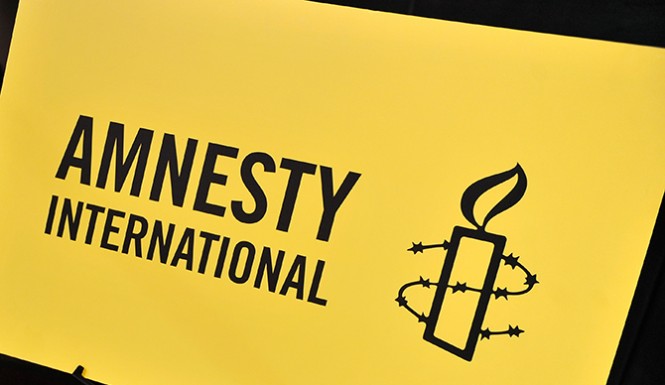NCTE Applauds Amnesty's Sex Workers' Rights Resolution

Today, several LGBT rights organizations across the country issued the following joint statement in support of Amnesty International’s August 11th resolución supporting sex worker human rights.
Declaración conjunta en apoyo de la resolución de Amnistía Internacional:
As LGBT rights organizations in the United States, we join to applaud and support Amnesty International’s recent resolution to protect the human rights of sex workers by calling for decriminalization of sex work, while simultaneously holding states accountable in preventing and combatting sex trafficking, ensuring that sex workers are protected from exploitation, and enforcing laws against the sexual exploitation of children.
For many LGBT people, participation in street economies is often critical to survival, particularly for LGBT youth and transgender women of color who face all-too-common family rejection and vastly disproportionate rates of violence, homelessness, and discrimination in employment, housing, and education.
Transgender people engage in sex work at a rate ten times that of cisgender women, and 13% of transgender people who experience family rejection have done sex work (source). Whether or not they participate in trabajo sexual, LGBT people are regularly profiled, harassed, and criminalized based on the presumption that they are sex workers, contributing to the high rates of incarceration and police brutality experienced by these communities. As Amnesty International has clearly set forth, its resolution takes into account the negative impact of criminalization on the safety of sex workers, and furthermore, states remain obligated to protect the human rights of victims of trafficking and can use criminal law to dirección explotación.
When LGBT people are prosecuted for sex work, they face alarmingly high rates of harassment and physical and sexual abuse behind bars. One study found that 59% of transgender people in California men’s prisons report having experienced sexual assault while in custodia. Alternative diversion program alternatives are frequently based on moral judgment, sending the message that there is something wrong with people who are just trying to survive, and do nothing to address the actual needs of sex workers, including those sex workers who might prefer to be doing other kinds of work.
Las leyes que penalizan el intercambio sexual, ya sea por parte del vendedor o del comprador, impiden la capacidad de las trabajadoras sexuales para negociar el uso de condones y otros límites, y obligan a muchas a trabajar en lugares ocultos o remotos donde son más vulnerables a la violencia. La investigación y la experiencia han demostrado que estas leyes solo sirven para llevar a la industria a la clandestinidad, hacer que los trabajadores sean menos capaces de negociar con los clientes en sus propios términos y poner a quienes se dedican al trabajo sexual criminalizado en un mayor riesgo de secuestro y tráfico sexual. Y como han reconocido ONUSIDA y la Organización Mundial de la Salud, la criminalización también obstaculiza seriamente los esfuerzos para prevenir y tratar el VIH/SIDA, esfuerzos en los que las personas involucradas en el comercio sexual son socios cruciales.
We look forward to working together, with sex workers and sex workers’ rights advocates, and with Amnesty International, to replace laws that criminalize sex work with public policies that address sex workers' real economic and safety needs.
En solidaridad.
Defensores y defensores gays y lesbianas
Lambda Legal
Centro Nacional de Derechos de las Lesbianas
Centro Nacional para la Igualdad Transgénero
Centro de Derecho Transgénero

